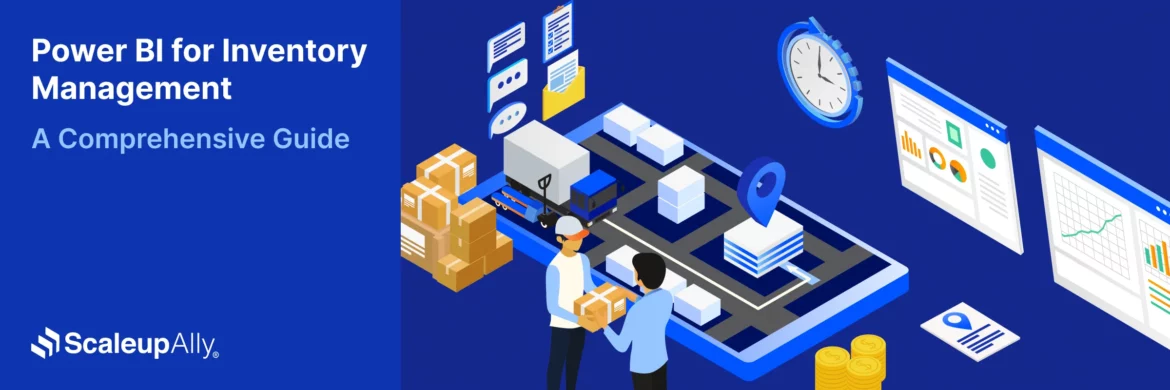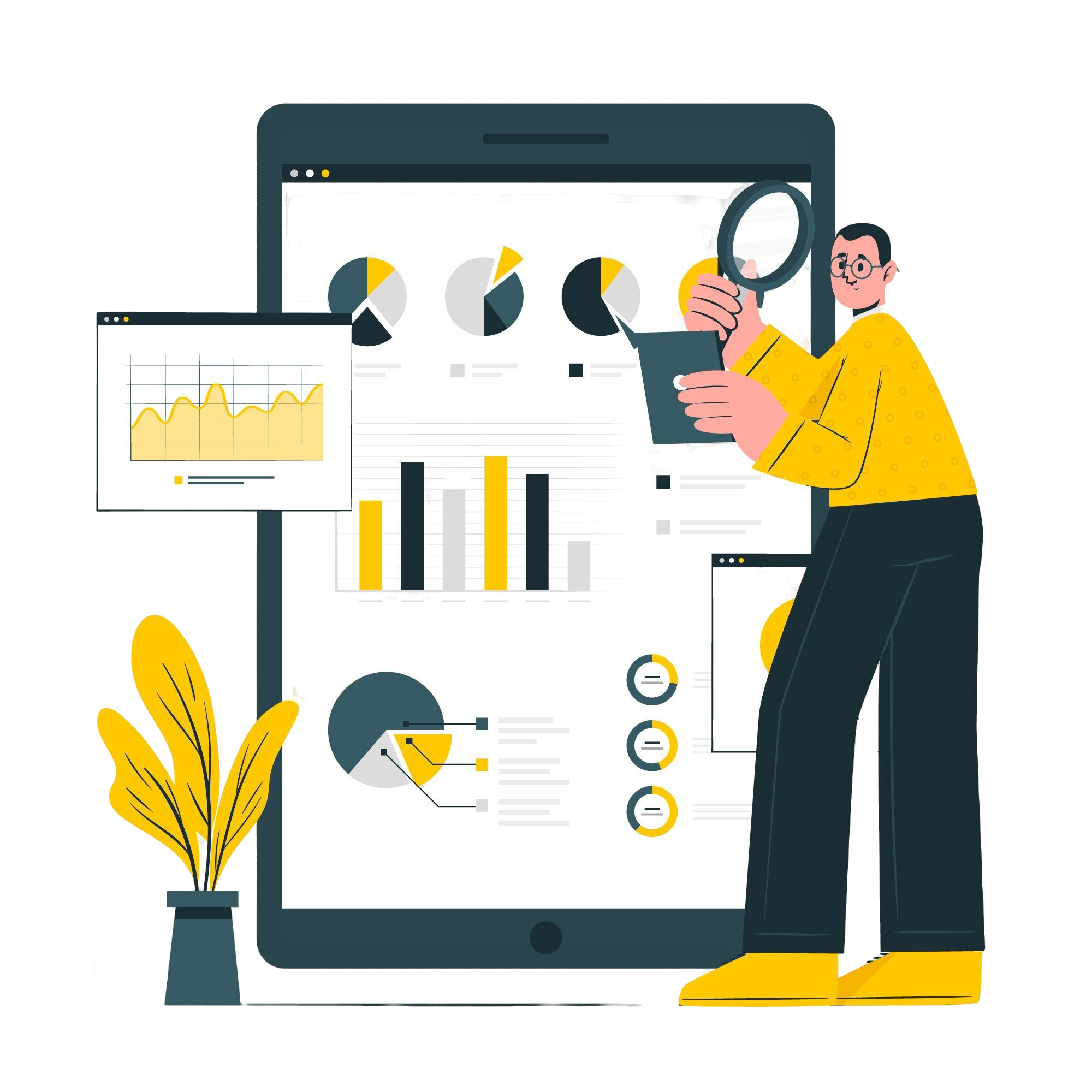
How Business Intelligence Helps in Decision Making?
Tarsem Singh | September 30, 2024 , 16 min read
Table Of Content
Every decision you make impacts your business’s success. Business Intelligence ensures those decisions are smart, data-driven and strategic.
Take the first step in learning how business intelligence and decision making can guide your choices by reading this blog further.
Key Takeaways
- Business Intelligence transforms raw data into actionable insights that drive smarter decision-making.
- BI eliminates guesswork by providing real-time, data-driven evidence for faster and more accurate choices.
- Visualization tools like dashboards and graphs make complex data easy to understand and act upon.
- Emerging BI trends such as AI integration, self-service BI, and real-time analytics are shaping the future of decision-making.
- Organizations that embrace BI avoid common decision-making pitfalls and position themselves for growth, agility and innovation.
What is Business Intelligence?
- What is Business Intelligence?
- How BI is Used To Support Decision Making?
- How Business Intelligence Powers Smarter Decisions: A Simple Flow
- Real-World Example: How Business Intelligence Drives Better Decisions
- Benefits of Business Intelligence for Decision Making
- Common Decision-Making Mistakes That Business Intelligence Helps Avoid
- Business Intelligence Use Cases in Decision Making
- 5 Emerging Trends in Business Intelligence
- Let ScaleupAlly Assist You In Making BI-Driven Decisions
- Conclusion
- Frequently Asked Questions
Business Intelligence, or BI, is a technology-driven process that helps businesses collect, analyze, and present data in ways that are easy to understand and interpret.
Components of Business Intelligence
Before we understand how business intelligence helps in decision making, let us look at some key components of BI that turn raw data into practical insights.
Here are some of the most important ones:
1. Data Sources
Data sources are where all your business’s data originates. They could be customer transactions, social media activity, website traffic, emails, etc.
Anywhere data can be generated is a data source.This is the starting point of BI. The data from all sources of the business is collected and gathered into one place for processing and analysis.
2. Data Analysis
At this point, the data is analyzed by sorting and cleaning for patterns, trends, and insights. This process helps answer important business questions such as, “What products are selling the best?” or “Why did sales drop last quarter?”
This process is meant to transform data into something meaningful that businesses can act on.
3 .Data Visualization
Even the best analysis won’t help if the transformed data is hard to understand. This is why we think data visualization is the best business intelligence feature yet.
To help any demographic understand the data they are looking at, BI translates all numbers and insights generated in the data analysis stage into clear, easy-to-read charts, graphs, and dashboards.
Thus, it is easier to quickly spot trends, compare metrics, and make informed decisions at a glance instead of reading through long reports.
Also Read: Business Intelligence Strategy: Benefits and Key Components
How BI is Used To Support Decision Making?
BI plays a critical role in effective decision making backed by data. Let is take a look at how it supports this process:
1. Data-Driven Insights
The only way a key decision maker can eliminate guesswork (which should have no place in business decision making or even be encouraged) is if they have access to accurate and up-to-date data.
This allows them to rely on solid evidence rather than intuition. For example, a store manager might instinctively run a discount if sales decline, even though the underlying issue may not be related to pricing.
However, with BI, they could identify that customer preferences have changed or that rearranging products in certain aisles might help, enabling them to adjust their actions instead of resorting to discounts whenever sales drop.
2. Trend Analysis
If you’re an ardent Christmas celebrant, you may have noticed your shopping patterns change in December, especially in the weeks leading up to Christmas.
Why does this matter?
Trends tend to repeat, and BI can track historical data to identify these trends over time. This implies that you can see seasonal patterns or consumer behavior shifts simply by analyzing the data.
For instance, a retailer might notice that certain products sell better during specific months. To prepare for the surge, they can stock up in advance.
3. Real-Time Reporting
Conditions change rapidly in industries like finance and eCommerce, and your ability to make real-time decisions impacts your business greatly.
BI could be your ally in this case because it offers real-time reporting capabilities for you to make decisions based on the latest information.
Thus, you can act ahead of your competitors before they catch up on the trend.
How Business Intelligence Powers Smarter Decisions: A Simple Flow
When it comes to using BI effectively, it’s important to understand the decision-making journey from raw data to business action.
Here’s a simple flow that shows how Business Intelligence supports better decisions:
BI Decision-Making Flow:
- Data Collection → Gather information from various sources (sales, customer behavior, operations).
- Data Processing → Clean, organize, and analyze the raw data to identify patterns.
- Insight Generation → Discover key findings, trends, and problem areas.
- Decision Formulation → Use the insights to formulate strategic choices.
- Action Implementation → Apply the decision through business initiatives.
- Impact Measurement → Track KPIs to see how the decision influenced results.
Instead of relying on assumptions or gut instincts, BI ensures every decision is evidence-backed, purposeful and measured for success.
Real-World Example: How Business Intelligence Drives Better Decisions
Let’s quickly look at a real-world example of one of our clients that used BI to transform their decision-making process:
Case Example: Retail Industry
A large fashion retailer used Business Intelligence to monitor customer shopping trends. BI dashboards revealed that sales for winter jackets were declining much earlier in the season compared to previous years.
Instead of blindly launching an end-of-season sale, the retailer used this insight to:
- Introduce a mid-season lightweight collection earlier.
- Reallocate marketing spend to promote transitional wear.
- Optimize stock across stores in different climatic zones.
The Result?
- A 22% increase in seasonal sales.
- 18% reduction in unsold inventory.
- Higher customer satisfaction due to relevant product availability.
Insight to Action: This example shows how understanding data led to a smart, timely pivot—boosting revenue while minimizing losses.
Benefits of Business Intelligence for Decision Making
Based on how BI supports decision making, you have probably picked a few benefits of BI already.
Business Intelligence offers numerous advantages when it comes to decision-making.
Here’s how business intelligence and decision making work hand in hand:
1. Insightful decisions
A great benefit of business intelligence is that it provides data-driven insights so that businesses can make decisions based on facts rather than assumptions.
This level of data accuracy enables businesses to understand certain customer behaviors and market conditions and make decisions that benefit the business.
2. Increased Productivity
The entire BI process is automated. It requires just a few clicks to generate reports. Before introducing this technology, analysts spent hours manually analysing data to spot something that could be of help, which was occasionally riddled with errors.
At the moment, instead of spending hours gathering and interpreting data manually, decision makers have access to easy-to-understand reports and dashboards.
This speeds up decision making so businesses can respond faster to challenges and opportunities.
3. Better Forecasting
BI supports predictive analysis, which means businesses can make more accurate forecasts about future performance. It allows companies to gain insights from past data, which is incredibly valuable for making sense of what might happen in the future.
With these trends from previous years, businesses can get a picture of various factors, like how sales might fluctuate or how the market could change.
4. Identifying Opportunities and Risks
Patterns uncovered from BI empower businesses to identify new opportunities that previously didn’t seem obvious. This could include identifying new opportunities in emerging markets or untapped customer segments.
With such insights, businesses can position themselves strategically for growth.
Furthermore, the same tool can serve as an early warning system by highlighting potential organizational risks for decision makers to act on. Management can be alerted to declining sales figures, allowing companies to address these issues before they escalate into bigger problems.
Common Decision-Making Mistakes That Business Intelligence Helps Avoid
Without proper data support, decision makers often fall into these traps:
| Common Mistake | How BI Helps |
| Relying on gut feeling instead of facts | BI bases decisions on real-time and historical data, eliminating guesswork. |
| Reacting too slowly to market shifts | BI tools provide real-time updates, enabling faster response to emerging trends. |
| Misinterpreting trends due to incomplete data | BI integrates data from all sources to provide a full, unbiased picture. |
| Ignoring early warning signs | BI dashboards highlight anomalies and declining metrics before they become major problems. |
| Over or underestimating demand | BI-driven forecasting predicts demand patterns accurately, improving resource planning. |
Business Intelligence Use Cases in Decision Making
Business Intelligence in its versatility, can be applied across various industries to improve decision-making processes.
Here are three key sectors where business intelligence coupled with decision making is making a significant impact:
1. Retail
BI is invaluable in the retail industry in understanding customer behaviour and sales trends. Here’s a close look into how it works:
- Inventory Management: As previously stated, you can track which products sell best during specific seasons or events using BI. With such insights, stock levels can be adjusted accordingly to minimizes excess inventory and ensures popular items are always available.
- Customer Insights: Analyzing data from loyalty programs will enable retailers to gain insights into customer preferences and shopping habits. This can be done by creating targeted marketing campaigns that resonate with their audience. This personalization increases engagement and conversion rates.
- Sales Forecasting: Based on historical data, retailers can predict future trends. This will help them decide how best to approach promotions, staffing, or inventory stocking to meet customer demand without overwhelming their resources.
Also Read: Key Benefits of BI in Retail Industry
2. Healthcare
BI improves patient care in the healthcare industry by:
- Patient Care Optimization: Healthcare providers now have the opportunity to track trends in health outcomes and treatment effectiveness by analyzing patient data. This data will show where they are failing and the steps they need to take to improve their patient care strategy.
- Operational Efficiency: Not only does BI focus on patient care in the health sector, but it also spans departments of health facilities. BI tools can analyze administrative data, such as staffing levels, patient wait times, and resource utilization, for healthcare facilities to identify inefficiencies and determine how they can improve their daily operations.
- Financial Management: Healthcare organizations are able to track expenses, revenues, and billing processes to help providers make better decisions about budget allocation, cost-cutting measures, and revenue cycle management for improved financial health.
Learn more about how healthcare business intelligence is transforming the healthcare industry.
3. Manufacturing
The manufacturing Industry is not left out of the transformation BI brings to decision making.
- Quality Control: Manufacturers can identify patterns that lead to defects or quality issues by analyzing production data. BI, in turn, enables them to implement preventive measures and improve quality control processes to reduce waste and ensure that products meet standards.
- Supply Chain Management: BI provides valuable insights that allow companies to make smart choices regarding where to source their materials, how to plan their production schedules, and how to manage logistics effectively. This careful approach ensures they can fulfil customer demand while avoiding the risk of stretching their resources too thin.
- Performance Monitoring: By tracking sensors from various machines, Manufacturers can examine this data to help them find and fix problems such as slowdowns in production. This allows them to act quickly to solve any issues, allowing for timely interventions that enhance overall productivity.
Learn more about how BI is shaping the manufacturing industry
5 Emerging Trends in Business Intelligence
Technological advancements and changing business needs continuously influence business intelligence. Here are the five key trends currently shaping BI industry:
1. Artificial Intelligence and Machine Learning Integration
The integration of artificial intelligence and machine learning into business intelligence tools is a remarkable development. Companies can now make decisions based on informed forecasts rather than historical data.
This change empowers businesses to understand their customers and anticipate their needs in order to serve them effectively.
Combining AI and machine learning reshapes how companies approach data, leading to faster and more accurate decision-making processes.
2. Self-service BI
Self-service BI allows everyone, regardless of position, to access and use data without help from the IT department.
This means employees can easily find the necessary information and decide based on that data.
With user-friendly tools and interfaces, workers can create reports and tweak dashboards to fit their needs. This flexibility is convenient; it encourages a workplace atmosphere where people share their findings.
As a result, everyone gets involved in discussing data insights, which can lead to new ideas and improvements.
Overall, it helps to build a sense of teamwork and encourages a creative spirit within the organisation.
3. Cloud-Based BI Solutions
More and more companies are starting to use cloud-based business intelligence platforms, and there are several good reasons for this trend.
One of the main advantages of these platforms is that they are very flexible and user-friendly. This implies that people can access important data almost anywhere.
When team members can look at the same data simultaneously, it makes it much easier to collaborate and share ideas.
Moreover, using cloud solutions means businesses don’t have to worry as much about the technical side of things, like managing physical servers and other equipment.
Instead of spending time and resources on maintaining this infrastructure, companies can concentrate on what matters: understanding their data and finding valuable insights.
This shift allows organisations to be more agile and make smarter decisions based on the information they gather.
4. Real-Time Analytics
As businesses seek to adapt quickly to changing circumstances, the ability to analyze data in real time has become essential.
This indicates that organizations can keep a close eye on their performance metrics at all times to make quick and informed decisions based on the most current information available.
This skill is especially important in rapidly changing industries, where acting quickly can make a big difference in achieving successful results.
The ability to respond promptly not only helps businesses stay competitive but also enhances their overall effectiveness in reaching their goals.
Also Read: Business Intelligence vs Data Analytics
5. Data Governance and Security
In recent times, there has been a growing concern among people about how their personal information is handled, which has led many companies to focus more on how they manage their data.
As a result, businesses are now emphasizing more on making sure their systems for business intelligence are effective and secure. This shift highlights the importance of keeping data accurate and reliable and following the rules set by various regulations to protect sensitive details.
To achieve this, organizations are investing resources in strong security practices and creating clear policies that guide how they handle data.
These efforts are essential in ensuring that the information they manage remains trustworthy and that they comply with the necessary regulations.
By doing so, companies aim to build trust with their customers and stakeholders, demonstrating that they take data protection seriously.
Let ScaleupAlly Assist You In Making BI-Driven Decisions
We believe that data shouldn’t just be numbers and statistics; it should help you build strategies for growth and innovation.
With our expertise, you can transform basic data into practical steps that lead your business toward success.
Business Intelligence can be tricky, but we’re here to help you every step of the way. This partnership can empower you to make thoughtful decisions that push your business to new heights.
So, why not reach out to ScaleupAlly today, and let’s embark on this journey together?
Conclusion
Don’t let your competitors gain the upper hand. Use Business Intelligence to make smarter, data-driven decisions that can move your business forward today.
As James E. Faust wisely said, “Some of our important choices have a timeline. If we delay a decision, the opportunity is gone forever. Sometimes our doubts keep us from making a choice that involves change. Thus an opportunity may be missed.” Embrace BI now, and seize opportunities before they slip away.
Frequently Asked Questions
Q: How does business intelligence improve decision making?
Business intelligence improves decision making by providing data-driven insights. It helps organizations analyze trends, identify opportunities, and make informed, accurate decisions based on real-time and historical data.
Q: What is the role of business intelligence tools in effective decision-making?
BI tools automate data analysis, offering visual reports, dashboards, and predictive insights. They help decision-makers understand complex data quickly, enabling faster, more accurate, and informed choices in business operations and strategy.
Q: How much does it cost to implement BI in decision making processes?
The cost of implementing BI varies based on factors like software, data sources, and business size. Pricing can range from affordable subscription models to higher custom solutions, depending on your organization’s needs.
Related Blogs

Data Warehouse Cost Breakdown: Factors, Pricing Models & Platform Comparison
Discover how much a data warehouse costs in 2025. Explore pricing models, key factors, and platform comparisons to plan your data budget effectively.
Tarsem Singh
Nov 6 ,
14 min read

How Much Do Integrations Cost? [Pricing Breakdown & Key Insights]
Learn how much integrations cost, key factors influencing pricing, hidden expenses to avoid, and effective ways to reduce integration costs.
Tarsem Singh
Nov 6 ,
9 min read

Power BI for Inventory Management: A Comprehensive Guide
Explore the hidden power of Power BI for inventory management and how it provides businesses with powerful analytics and visualization capabilities.
Tarsem Singh
Oct 8 ,
19 min read



